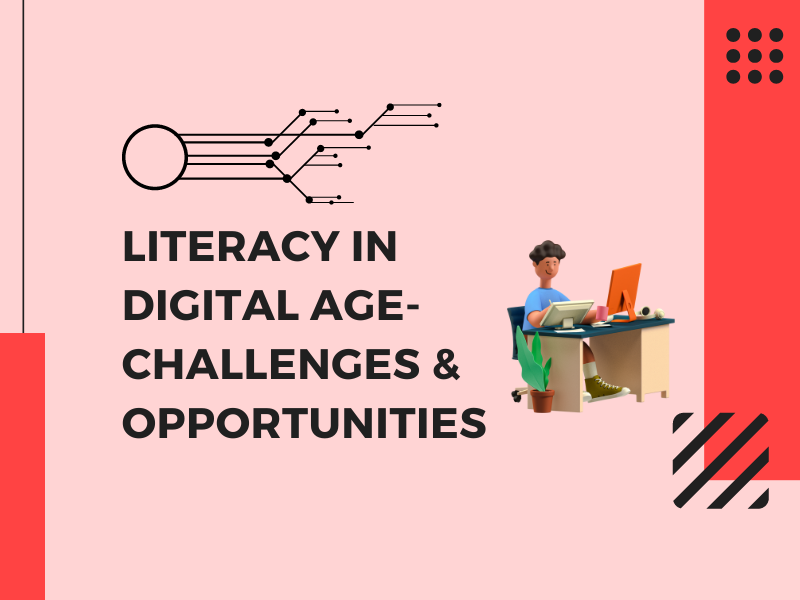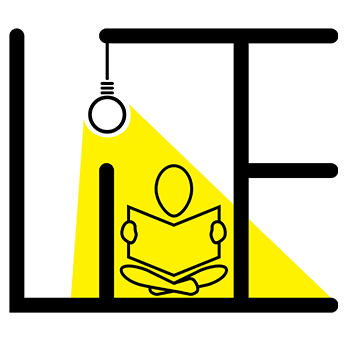In the digital age, the landscape of literacy is rapidly evolving, presenting both challenges and opportunities for individuals and societies. The widespread adoption of digital technologies has revolutionized how we access, consume, and produce information, profoundly impacting the way we read, write, and communicate. In this research-oriented blog article, we delve into the multifaceted world of literacy in the digital age. We explore the challenges posed by the digital revolution, such as information overload and the proliferation of misinformation. Additionally, we uncover the unique opportunities digital technologies offer to enhance literacy skills, empower learners, and promote digital citizenship. Join us as we navigate the complex terrain of literacy in the digital age, equipping ourselves to be literate, critical, and informed participants in the ever-evolving digital world.
The Digital Transformation of Literacy
The digital age has ushered in a transformative shift in the concept of literacy. Beyond traditional reading and writing skills, digital literacy has become an essential aspect of modern-day literacy. As technology becomes increasingly integrated into our daily lives, individuals must navigate the digital landscape adeptly. Digital literacy empowers individuals to engage with online information, media, and technology responsibly and meaningfully. It encompasses skills such as information literacy, media literacy, and digital communication, enabling individuals to access, evaluate, and utilize digital resources effectively. Embracing digital literacy equips individuals to thrive in a rapidly evolving digital world, enabling them to become informed, critical, and responsible participants in the digital age.
Information Overload and the Challenge of Digital Distraction
In the digital age, the vast amount of information available online poses a challenge of information overload for readers and learners. The digital world is filled with an abundance of data, news, articles, and social media updates, making it difficult to discern credible sources and focus on relevant and reliable information. The constant availability of distractions, such as notifications and social media feeds, further compounds the challenge, hindering sustained attention and deep engagement with reading and learning. As a result, individuals must develop strategies to filter and prioritize information effectively, ensuring they can stay focused on valuable content and avoid falling victim to digital distractions.
Navigating Misinformation and Fake News
In the digital age, navigating misinformation and fake news has become a critical aspect of literacy and critical thinking. With the abundance of information available online, it is essential for individuals to develop skills in discerning reliable sources and verifying information. Misinformation and fake news can spread rapidly through social media and other digital platforms, making it challenging to distinguish between accurate and misleading content. Educators and learners alike must cultivate critical literacy skills, enabling them to critically analyze and evaluate the credibility of online sources and information. By equipping individuals with these essential skills, they can make informed decisions, avoid being misled by false information, and contribute to a more informed and responsible digital society.
Harnessing Technology for Enhanced Literacy Skills
Harnessing technology for enhanced literacy skills opens a world of opportunities despite the challenges of the digital age. Interactive e-books, educational apps, and digital platforms offer engaging and interactive learning experiences, promoting reading comprehension and language development. These digital resources cater to diverse learning styles and abilities, allowing educators to provide personalized learning experiences that support each learner’s unique needs. By incorporating technology into literacy education, students can explore educational content in interactive and innovative ways, fostering a love for reading and a deeper understanding of language. Technology becomes a powerful tool to empower learners on their literacy journey, ensuring that they develop the necessary skills to thrive in an ever-evolving digital world.
Promoting Digital Citizenship and Responsible Use
Promoting digital citizenship and responsible use of technology is essential in the digital age. As individuals engage with digital content, they must develop digital citizenship skills, including ethical behaviour, online safety, and responsible use of technology. Educators play a crucial role in promoting digital citizenship among learners, instilling values of respect, empathy, and responsibility in online interactions. By being responsible digital citizens, individuals contribute to a positive and inclusive digital culture, ensuring that digital spaces remain safe and conducive to learning. Emphasizing digital citizenship not only empowers individuals to make ethical decisions in their online interactions but also promotes a sense of digital responsibility, ensuring that technology is used in ways that foster positive and meaningful connections in an increasingly interconnected world.
Conclusion
In conclusion, the digital age has redefined the landscape of literacy, incorporating traditional reading and writing skills alongside digital literacy. While the digital world presents challenges of information overload, distractions, and misinformation, it also offers unique opportunities to enhance literacy skills and empower learners. By fostering digital citizenship and critical literacy, individuals can navigate the digital landscape with confidence, making informed decisions in an ever-changing world. Embracing the benefits of technology in education and promoting responsible digital citizenship equips individuals to be active and responsible participants in the digital realm. As we embrace literacy in the digital age, we celebrate the power of knowledge and information, while also recognizing the importance of ethical behaviour and critical thinking. By fostering a sense of curiosity, resilience, and adaptability, we prepare ourselves to be lifelong learners, equipped to thrive in the rapidly evolving digital world.

